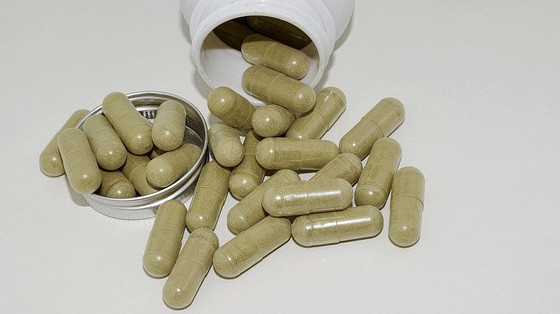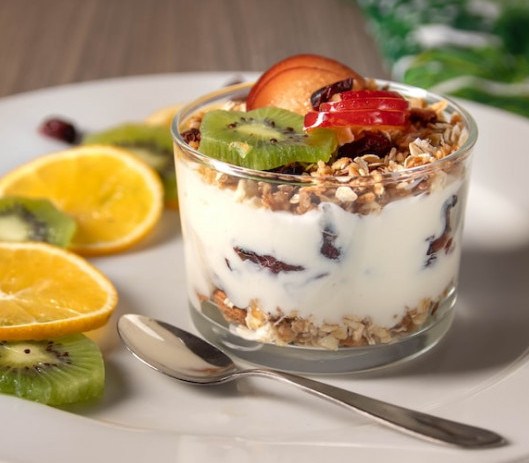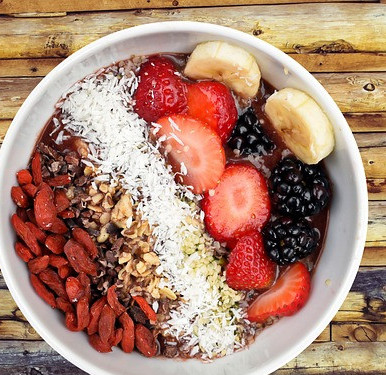
The best way to keep your gut healthy is by eating organic health foods but let’s face it, in this day and age people are busier than ever. Most products are GMO, filled with toxins and parasites, is it ideal to always keep up with eating the best? The answer most will agree with is no!
This is where gut supplements are needed to fill the gap of lacking nutrients in our body.
The gut health supplement is a trending topic that has been thrown all over social media, example #Guttok has over a million views talking about how gut products have healed their gut. Some people claim overnight solutions to gut issues like bloating, and diarrhea to name a few but this is further from the truth as there is no such thing as a magic bullet solution to these gut health problems.
On the flip side awareness of gut health has increased and people are starting to take health matters into their own hands instead of relying totally on their healthcare providers. These are some of the driving factors increasing the gut health supplement industry market
It was reported in PRnewswire that there will be a staggering gut supplement growth of 7.86 billion dollars from 2022 to 2027 which is insane. What’s driving this growth? consumers of course, who are becoming aware of gut health and how vital it is to their overall health.
If you’re one of those people who want to improve your gut but are wondering is it worth considering? Then keep reading so you can make an important decision before you delve into the unknown world of gut health supplements.
By investing time into learning which supplements can work for you, you’ll avoid making a dent in your wallet and the same time learn which ones are the best gut supplements that are worth your investment.
Types of Gut Health Supplements
Here are the main categories of gut health supplements:
- Probiotics – These are live beneficial bacteria or yeasts that can be found in fermented foods like yogurt, kefir, and sauerkraut, and in dietary supplements. Probiotics introduce live microorganisms into the gut to promote a healthy balance of gut bacteria
- Prebiotics – These are both soluble and insoluble fiber that enhances the growth of good bacteria in the gut. They are found in plants like whole grains, fruits, and vegetables.
- Digestive enzymes- These substances are released from the salivary glands, gut lining, and pancreas. They help in food digestion so nutrients are absorbed into the rest of the body. Examples of these enzymes are amylase, maltase, lipase, etc.
- Fiber supplements – They are mainly fiber that can help with constipation, diarrhea, and lower cholesterol levels. They can be soluble or non-soluble fiber. Soluble meaning they form a gel-like substance in the digestive tract making elimination easier over time. Unsoluble fibers add bulk to the stools making pooing quicker and preventing constipation.
Probiotics: The Beneficial Bacteria
Now let’s talk about the benefit of probiotics and their role in balancing the gut microbiome. They help with diversity in the gut bacteria, improving the immune system, preventing constipation, and increasing the vaginal microbiome. There are various strains of beneficial bacteria commonly found in probiotic supplements. Some of the benefits of probiotics are improved digestion, immune support, and inflammation reduction.
Examples of dairy products that are rich in probiotics are yogurt and kefir to name a few. Non-dairy products are miso and kimchi.
Prebiotics: Fueling Your Gut Microbes
Prebiotics play a role in feeding the growth of beneficial gut microorganisms and are found in fiber-rich foods. Essentially they create an environment for probiotics to thrive. Some prebiotics are in fiber foods and some can be found in non-fiber foods.
This study proposed that prebiotics have benefits such as:
- Assist probiotics in increasing good gut microorganisms that promote healthy digestion and enhance the absorption of nutrients in the gut preventing disease.
- Increased. absorption of minerals
- Boost the immune system
- Fight infection
Sources of natural prebiotics 
- Bananas – They have a special fiber known as Inulin a soluble fiber. Bananas contain about 3 grams of fiber. It enriches the gut microbes by fermentation
- Garlic. – It is a readily available prebiotic food, it might have a small amount of fiber in every clove of garlic about 0.1 grams of fiber but packed with robust fiber.
- Barley – It is a grain that’s underused but eating it even in small amounts can give a high amount of fiber
- Explore how prebiotic supplements can support gut health by nourishing existing gut bacteria.
- Oats – They are rich in beta-glucan, which is a fiber that nourishes microbes in the gut.
- Kiwifruit – Has a chemical called polyphenols which is known to carry fiber, about 75 grams of kiwifruit have about 2.3 grams of fiber.
Digestive Enzymes: Enhancing Digestion

Digestive enzymes are proteins that are vital bodies. Their main purpose is to break down the foods we eat. Only when food is broken can the nutrients be extracted. So enzymes play a vital role in getting appropriate nutrients from the food we consume. These nutrients serve as the powerhouse for our bodies to tackle our activity at full charge.
When this process gets interrupted our bodies will not get enough nutrients to carry out their normal function. For example, if the body doesn’t produce enough lactase enzymes, breaking down dairy products will be problematic. As a result, individuals can experience discomfort, diarrhea, and gas.
Another example would be if you have insufficient amylase, digestion of carbohydrates, starches into simple sugar would many health issues. This leads to dysregulation of blood sugar, hypoglycemia/hyperglycemia which might spiral quickly into diabetes disease,
Digestive enzymes decline as we age due to gradual damage that occurs to organs over time impairing their ability to function properly. These organs are the salivary glands, small intestine, liver, gall bladder, and pancreas.
Also when an organ is affected by a disease it fails to work properly which means digestive problems for you. For instance, Coceliac disease attacks the small intestine where protein is digested. You might be thinking what does protein have to do with digestive enzymes?
Well, it has everything to do with it because all enzymes are proteins after all. Thus if there is a lack of protein then your body won’t have the means to digest enzymes to carry out normal functions that they were meant to do. Are you connecting the dots now?
What can affect digestive enzymes?
- Poor diet can affect digestive enzymes because these diets don’t provide the necessary building blocks for digestive enzymes to carry on their proper function.
- Stress is a big issue that can affect the production of enzymes how? As the body goes through constant chronic stress it weakens and loses the ability to repair itself. Being in this constant limbo compromises the ability of the body to make enough enzymes to function properly.
Fiber Supplements: Boosting Digestive Health

Fiber is an important component to make digestion easy and to have regular bowel movements. Although we can get dietary fiber from the food we eat, it’s not something everyone can tolerate because we have different ways of reacting to foods. This is where fiber supplements can be used by individuals with intolerances like gas, bloating, and abdominal cramps when they consume fiber rich foods.
There are two types of fiber soluble and insoluble. You can find more information in this article.
What should I look for when choosing the Right Supplement?
The choices can be overwhelming as you see promotions on supplements everywhere you look, therefore it is critical to know what you’re putting into your body. Some companies will sell anything without caring for their customers. So be on the lookout.
Here are some tips for getting the best supplements for your buck.
- Look for reputable brands with transparent labeling.
- Consider the specific strains and types of bacteria or enzymes in the supplement.
- Check the CFU count for probiotics and the dosage for other supplements.
- Consider potential allergens and additives in the supplement.
Potential Risks and Considerations
There could be potential side effects, such as bloating or gas, that some individuals might experience, at the beginning of starting or over-consuming supplements so going slow is recommended.
It is also very important to consult a healthcare professional before starting any new supplement regimen.
Finally, be cautious of relying on supplements. For those who can tolerate nothing is better than eating from the earth-grown food. Because it will give you the best-balanced diet for your gut health.
Conclusion
- Maintaining a healthy gut is crucial for overall well-being, often achieved through organic, nutrient-rich foods.
- Making informed decisions is vital based on individual needs to consider if gut health supplements are right for you all.
- Prebiotics, found in fiber-rich foods, nourish an environment for good bacteria to flourish.
- Probiotics have beneficial microorganisms, supporting gut balance and overall well-being
- Digestive enzymes are essential for breaking down foods and extracting nutrients.
- Fiber supplements aid in digestion, relieving discomfort, and promoting regularity.
- Careful considerating when choosing reputable brands and clear labels so you don’t waste your time, and money on a useless supplement that doesn’t give you the health benefits you want.
- Consulting with your healthcare professionals before starting any supplements
References
- https://www.today.com/health/diet-fitness/supplements-for-gut-health-expert-opinion-rcna36865
- Digestive Health Supplements to grow by USD 7.86 billion from 2022 to 2027|Growing awareness about digestive health drives the market – Technavio (prnewswire.com)
- Probiotics: Reiterating What They Are and What They Are Not – PMC (nih.gov)
- Digestive Enzymes: Types and Function (verywellhealth.com)
- A review of probiotic supplementation in healthy adults: helpful or hype? – PubMed (nih.gov)
- What Is Inulin and Am I Eating Enough of It? (eatingwell.com)
- How Much Fiber Is Too Much? Effects, Treatment, and More (healthline.com)
- 9 Foods That Are Naturally High in Digestive Enzyme (eatingwell.com)
- How To Choose The Right Gut Health Supplements – A Guide – Zenwise
